Scientific Name(s): Vitex agnus-castus L.
Abundance: common
What: seeds
How: ground for seasoning
Where: landscaping
When: fall, winter
Nutritional Value: none
Dangers: supposedly lowers libido in men while also makes women more likely to get pregnant
Medicinal Summary:
Dried Seeds* - maintains proper progesterone/prolactin levels; reduces excess prolactin; soothes PMS breast tenderness; reduces heavy menstrual bleeding; reduces cycles longer than 28-days; increase milk production; may prevent uterine fibroids; mild sedative; reduces PMS and menopause mood swings; which helps with PMS mood swings; reduces menopause hot flashes (tincture, tisane)
*can reduce male libido over time
Chaste Tree
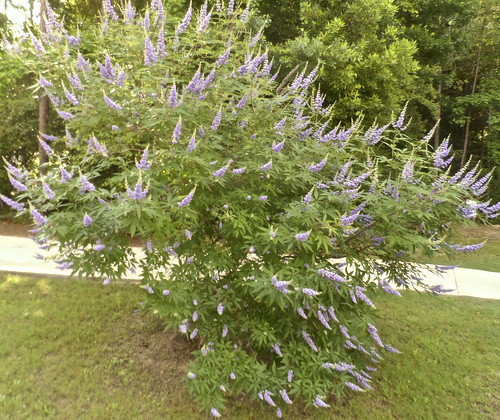
Chaste Tree leaves (not edible).
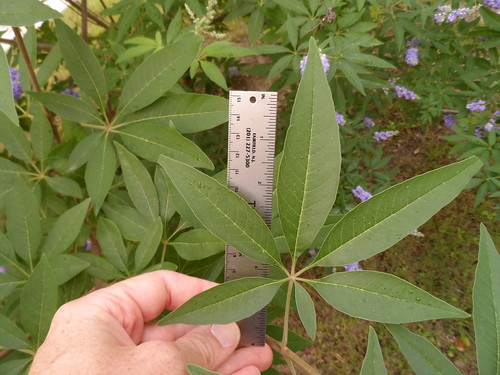
Chaste Tree flowers (not edible).
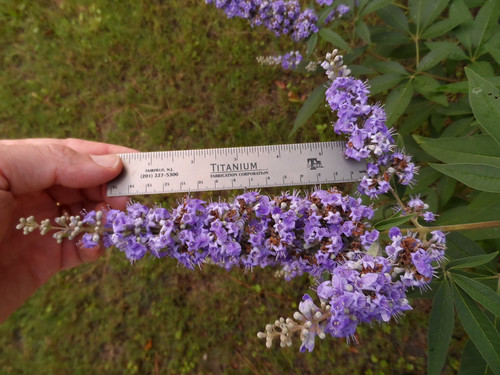
Chaste Tree flowers close-up.
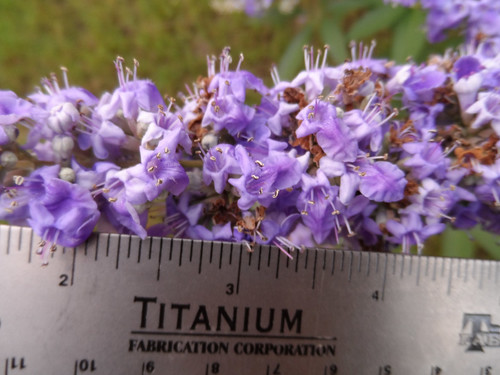
Chaste Tree seeds (edible).
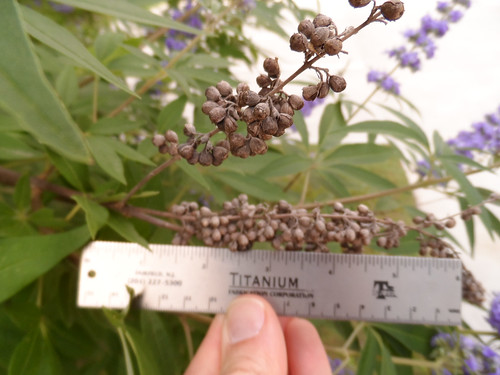
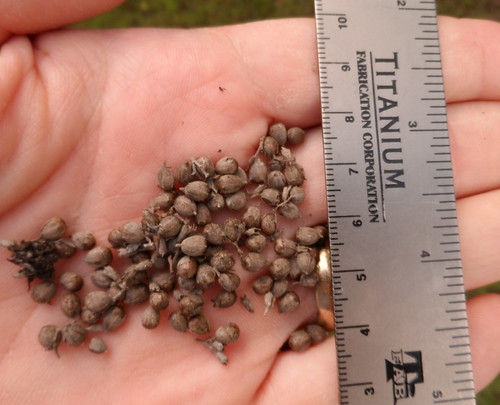
Chaste Tree bark.
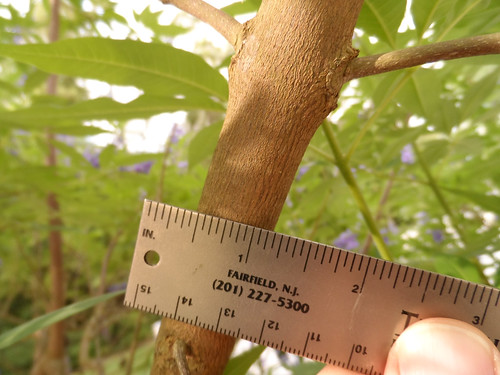
Texas distribution, attributed to U. S. Department of Agriculture. The marked counties are guidelines only. Plants may appear in other counties, especially if used in landscaping.
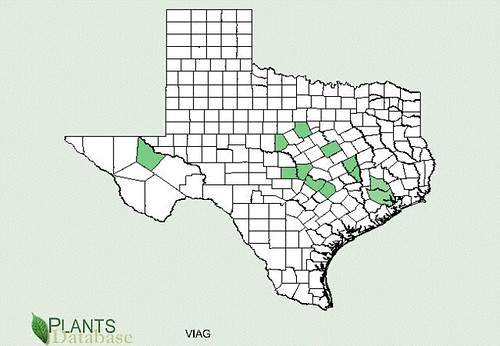
This map is very incomplete.
North American distribution, attributed to U. S. Department of Agriculture.
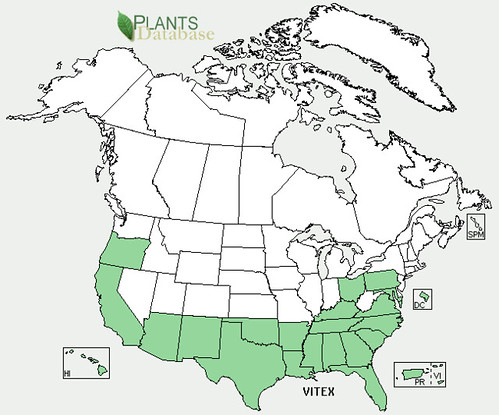
With summer comes the multitude of blue, flowering spikes of the Chaste Tree. Used in landscaping all across the south, this multi-trunked small tree/large bush is cherished for it's beauty, scent, and attraction for bees, hummingbirds, and butterflies. Rarely if ever is tree found in the wild and if so it will be in full sun to partial shade with well drained soil. Besides almost every branch ending in a large spike of small flowers, the leaves of the Chaste Tree are sometimes mistaken for those of the marijuana plant.
In fall the flowers have become small gray/brown seeds which, when crushed release a pungent but pleasant aroma and flavor. For this reason the seeds have been used as a seasoning for ages. However, there is a belief that the seeds, when consumed, reduce a man's desire hence the name "chaste". Monks supposedly used Chaste Tree seeds to season their food and also reduce their passions. Chaste Tree seeds, in small doses, can slightly increase the amount of female hormone prolactin in men, which may give rise to the...uh, failure to rise. However, larger doses can actually reduce prolactin in men, perhaps making them more manly.
There is quite a bit of evidence and scientific studies which show these seeds have a great deal of beneficial effects for women. There is proof these seeds help with PMS, and many other menstrual issues, helping fertilized eggs bond to the womb, and many other hormone-based issues. Please note, this is not medical advice, just a review of what others claim.
Buy my book! Outdoor Adventure Guides Foraging covers 70 of North America's tastiest and easy to find wild edibles shown with the same big pictures as here on the Foraging Texas website.

